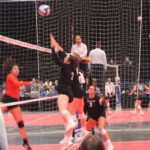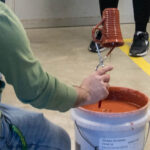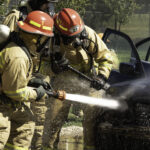Do you know a loved one, friend or someone who seems down, withdrawn, startles easily or gets angry for small reasons? Well this may be just a bad day or even week but if they seem that way for long periods of time, they could be suffering from Post-Traumatic Stress Disorder (PTSD) With Veterans day fast approaching, the following information is intended to shed light on some of the issues that veterans and others go through.
PTSD is a type of anxiety disorder that can occur after someone experiences a traumatic event. Some of the most common events leading to the development of PTSD can include:
- Combat exposure
- Childhood physical or sexual abuse
- Sexual or physical assault
- Serious accidents, such as a car wreck
- Being threatened with a weapon
- Experiencing natural disasters, such as a fire, flood, hurricane, tornado or earthquake
- Giving CPR
During these types of events, a person believes his/her life, or the lives of others are in danger. He or she may feel afraid or as if they don’t have any control over what is going on. Anyone who has gone through a life-threatening event can develop PTSD. Though many suffer from PTSD, this article will focus on veterans.
After an event, a Veteran may feel scared, confused or angry. If these feelings don’t go away or they get worse, the symptoms may disrupt their life, making it hard to continue daily activities. All Veterans who have PTSD have lived through a traumatic event that caused them to fear for their lives, see horrible things and feel helpless.
Veterans who suffer PTSD have a hard time admitting to it, as a lot of the feeling is that it’s a sign of defeat, or weakness, which at times can and does lead to suicide. According to thehill.com, “A grave statistic is that it is estimated that an average of 20 veterans per day commit suicide — which translates to one veteran every 65 minutes. Male veterans are 18 times more likely to kill themselves than their civilian counterparts, and female veterans are, sadly, 250 times more likely to commit suicide than their civilian counterparts.”
A veteran and Kirkwood student who asked not to be identified said, “I struggle with PTSD along with depression, well they kind of go hand in hand, I have my good days along with the bad.” He also gave this advice, “Be a friend, sit and listen or just sit with us as we might not say much but it’s good to know someone is there.”
Getting help is not a sign of weakness or defeat but a sign of courage. You are not alone, and we are here for you.
Although the statistics vary slightly, the Veterans Administration reports that 22 veterans take their lives every day. Twenty-two is unfathomable but one is too many, you are needed here. The world would be a much sadder and lonelier place without you all.
So, what can we all do? Take some training, learn the signs, talk to a counselor, be there. We can join people like Jon Bon Jovi who just released a new song “Unbroken” by purchasing the song. Speaking on the track, Jon Bon Jovi explained, “This song is meant to honor America’s veterans and their service but I also wanted to take an unflinching look at the reality of their daily lives and struggles.”
It’s common for veterans with PTSD to experience suicidal thoughts. Feeling suicidal is not a character defect, and it doesn’t mean that a person is crazy, weak or flawed. For anyone thinking about taking their own life, seek help immediately, talk to someone you trust or call a suicide helpline.
In the U.S, call
1-800-273-TALK (825)
Photographer
Categories: Feature










